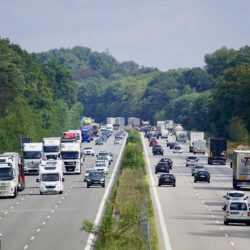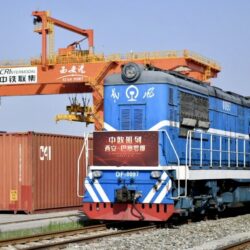Higher toll rate bumps up cost of road freight in Germany

Transport companies driving to or through Germany will face significantly higher costs as of next month when the toll rate for trucks (the Maut) will almost double due to the introduction of a carbon tax. The German government hopes that this measure will encourage carriers to switch to electric trucks.
As of 1 December, transport companies will be required to pay approximately 85% more per kilometre on German toll roads. After months of heated discussion within the governing coalition, the Bundestag recently approved the carbon tax. The toll will apply to domestic and foreign carriers alike.
The introduction of the additional charge has led to fierce protests from organizations representing carriers and shippers. However, according to Paul Poppink from the Dutch trade association Transport en Logistiek Nederland (TLN), by increasing the toll charges Germany is making maximum use of the leeway available to EU member states. “This is in accordance with European rules,” he states in Dutch financial newspaper FD.
High inflation
Logistics service provider Dachser is quoted in Dutch trade publication Nieuwsblad Transport as saying that the higher toll could increase transport costs by 3 to 8% per kilometre, when transport companies are already struggling with high inflation. The precise extent of the extra costs for businesses will depend on the transport distances, the freight volumes and the truck categories under the emissions standards.
The biggest trucks in the highest environmental category (Euro 6) are currently subject to a charge of €0.19/km in tolls. A carbon tax of €0.16/km will now be added to this, resulting in a total charge of €0.35/km. Carriers are expected to pass on these higher costs in full to their customers.
€30bn extra
Last year, the total revenue from the German toll system, which was introduced in 2005, amounted to €7.4 billion. The higher charge is expected to bring in an additional €30 billion between 2024 and 2027, which the German government intends to use to improve the road network and invest in the country’s aging rail network.










